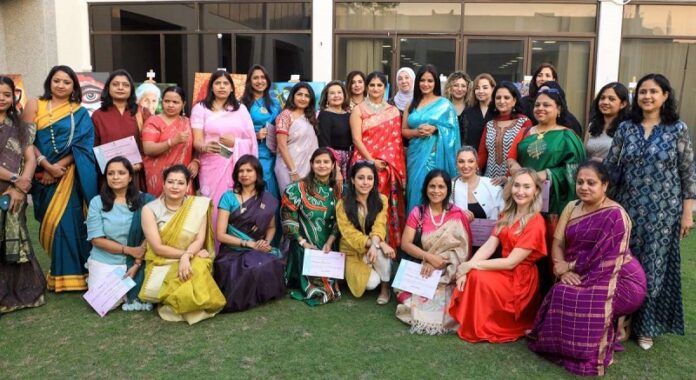In India, women’s empowerment is propelling the nation towards global leadership. From economic empowerment to education and leadership roles, women are driving inclusive progress. India’s President, Shrimati Droupadi Murmu, embodies this transformation. The Indian Constitution’s commitment to gender equality is evident, with women playing pivotal roles in various sectors. Initiatives like Pradhan Mantri Mudra Yojana and Pradhan Mantri Ujjwala Yojana are empowering women economically and environmentally. Furthermore, women’s growing presence in STEM fields, entrepreneurship, and leadership positions highlights their competence. India’s focus on Women-Led Development (WLD) aligns with global goals, emphasizing women’s leadership in societal, economic, and political change. Prime Minister Narendra Modi’s vision reinforces these efforts, focusing on skill development, equality, and economic empowerment. Globally, WLD is gaining momentum, with India’s G20 Presidency championing this transformative approach. India’s inspiring statistics showcase the potential of women to lead and shape a brighter future for all … writes Divya Rani
As women thrive, so does the world. Their economic empowerment becomes a catalyst for growth. Their ability to attain education propels advancement on a global scale. The presence of their leadership cultivates inclusiveness. Moreover, their voices serve as a wellspring of motivation for constructive transformation. The most impactful method to bolster women is by adopting a development approach guided by women. India is making fast advances in this direction.
India’s President, Shrimati Droupadi Murmu, stands as a compelling exemplar herself. Emerging from a modest tribal upbringing, she now leads the world’s most extensive democracy and holds the role of Commander-in-Chief for the second-largest defence force globally. Within this nurturing ground for democracy, the Indian Constitution bestowed the ‘Right to Vote’ impartially upon all citizens, regardless of gender, right from its inception. Similarly, the privilege to participate in elections was also extended without bias.
Elected women representatives have played pivotal roles in driving economic, environmental, and societal transformations. Notably, in rural local bodies across India, 46% of the 1.4 million elected representatives are women. The mobilization of women through Self-Help Groups has wielded a formidable influence for change. Amidst the pandemic, these Self-Help Groups and Elected Women representatives emerged as steadfast pillars of community support. They took on the production of masks and sanitisers while spreading awareness about curbing infections. India boasts over 80% female representation among nurses and midwives, who gallantly stood as the vanguard during the pandemic. Their accomplishments evoke a sense of pride.
Source: ANI

















